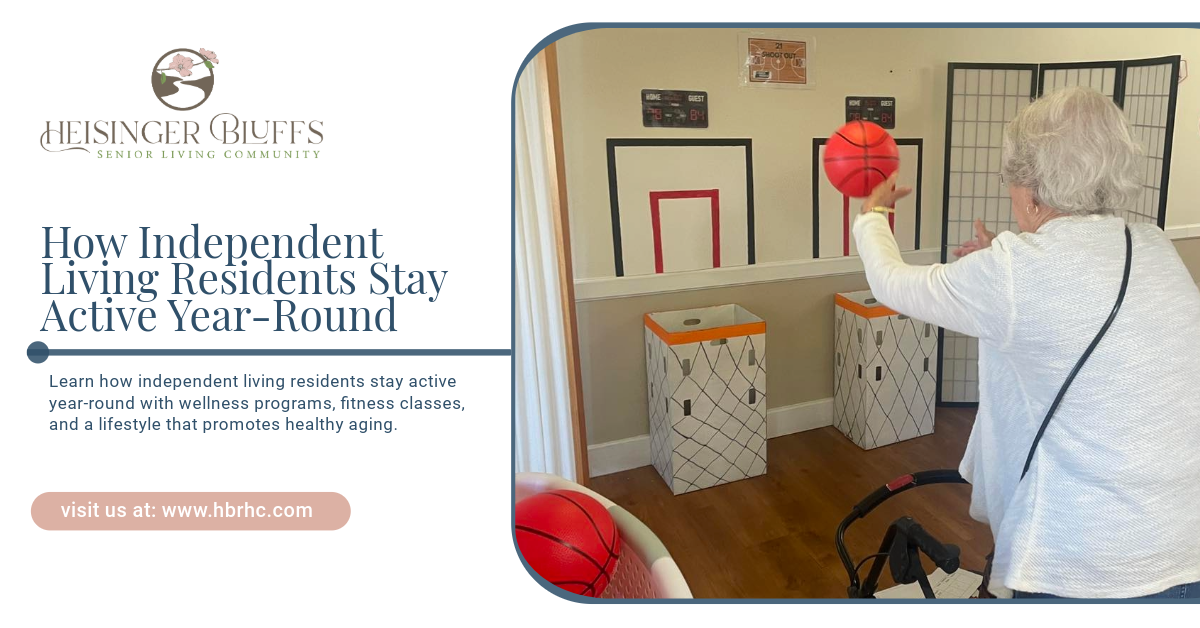Get in touch
Senior Living Solutions for Diabetes Patients in Jefferson City, MO

Understanding Diabetes in Seniors at Jefferson City Senior Living Communities
Diabetes is a significant health challenge in the elderly population, with a substantial impact on quality of life and the need for specialized care. Understanding the prevalence and implications of this condition is crucial for caregivers and family members considering senior living for diabetes patients in Jefferson City, MO.
Diabetes in the Elderly Population
Diabetes is a widespread issue among seniors. According to the American Diabetes Association, one in four people over the age of 60 has diabetes, which highlights the prevalence of the condition in the aging demographic. Furthermore, the Endocrine Society reports that an estimated 33% of adults aged 65 or older have diabetes, placing this population at a higher risk of developing diabetes-related complications compared to younger individuals with diabetes.
| Age Group | Percentage with Diabetes |
|---|---|
| 60+ | 25% |
| 65+ | 33% |
Figures are sourced from the Endocrine Society and the American Diabetes Association.
Impact of Diabetes on Seniors
The impact of diabetes on seniors is multifaceted, with potential complications including hypoglycemia, kidney failure, and heart disease. These risks underscore the importance of effective diabetes management, especially in senior living environments. The CDC notes that roughly 27% of Americans age 65 and older have diabetes. In senior living communities, a controlled yet diverse meal plan that is rich in diabetic-friendly options is essential for meeting nutritional needs while also providing variety. Additionally, ongoing diabetes education is a key component in empowering residents to manage their symptoms and make informed food choices.
Proper management of diabetes in senior living settings can help mitigate the risks associated with the condition, and facilities that specialize in caring for seniors with diabetes are equipped to provide the necessary support. These facilities often offer tailored care plans, including personalized dietary options and regular glucose monitoring, to meet the unique needs of seniors with diabetes.
For further reading on senior care for specific health conditions, please visit our articles on senior living for dementia patients, senior living for Alzheimer's patients, assisted living for Parkinson's patients, and senior living for arthritis patients. These resources provide valuable insights into the specialized care required for seniors facing various health challenges.
Senior Living Options for Diabetes Management in Jefferson City, MO
Choosing a senior living community that offers specialized care for diabetes management is crucial for the health and well-being of seniors with this condition in Jefferson City. These communities provide a supportive environment where diabetes management is a priority, ensuring that each resident's unique needs are met.
Customized Care Plans
Senior living communities understand that diabetes affects each individual differently. They offer customized care plans that take into account the specific needs and preferences of each senior resident. These plans often include medication management, regular health assessments, and coordination with healthcare providers to ensure a comprehensive approach to diabetes care. Such communities are adept at helping seniors with diabetes stay on track with their insulin or other prescriptions through reminders and assistance.
Personalized Dietary Options
Nutrition plays a pivotal role in diabetes management. Senior living communities cater to this need by providing personalized dietary options that are tailored to help manage blood sugar levels. These options include meals planned by registered dietitians with a focus on balancing carbohydrates, proteins, and fats, while also considering the resident's personal dietary preferences and restrictions. Assisted Living highlights the importance of such personalized meal plans in maintaining the health of diabetic seniors.
Glucose Monitoring
Regular glucose monitoring is essential for managing diabetes. Senior living communities equipped to care for diabetic residents have protocols in place for regular blood sugar checks. This helps in timely identification of any irregularities in blood sugar levels, allowing for quick intervention. Whether it's through traditional blood glucose meters or continuous glucose monitoring systems, these communities are prepared to keep a close eye on the residents' glucose levels, as noted by Assisted Living.
Senior living communities that offer diabetes management services provide peace of mind for caregivers and family members while empowering seniors to maintain as much independence as possible. For families looking for senior living options for other specific health conditions, such as dementia, Alzheimer's, Parkinson's, or arthritis, these communities often offer similar specialized care plans tailored to each condition.
Managing Diabetes in Assisted Living Communities
Managing diabetes effectively is critical for seniors, and assisted living communities play a vital role in facilitating this. These communities are equipped to provide comprehensive care that addresses the unique needs of diabetic residents in Jefferson City, Missouri.
Medication and Insulin Management
In assisted living communities, medication management is a crucial aspect of diabetes care. Residents often receive assistance in administering oral medications, such as Metformin, which can decrease glucose production in the liver and increase insulin sensitivity for better blood sugar control. Assistance with medication helps ensure that the correct dosages are taken at the appropriate times to maintain stable blood sugar levels.
While assisted living facilities may not be able to administer insulin injections in all cases, they often provide medication reminders and glucose monitoring. The level of care provided can vary depending on facility licensure, state regulations, staff availability, medical need, and other factors. It's important for caregivers and family members to understand the specific diabetes care services offered by each community.
| Care Service | Description |
|---|---|
| Medication Management | Assistance with oral diabetes medications |
| Insulin Management | Monitoring and reminders for insulin, subject to regulations |
Fitness Programs and Walking Clubs
Physical activity is a cornerstone of diabetic care, and assisted living communities often offer fitness programs and walking clubs tailored to the abilities of their residents. These programs are designed to help lower blood sugar levels, boost mood, and improve overall health. Regular participation in such activities is encouraged, as it can lead to significant improvements in diabetes management.
For seniors with mobility issues or other health conditions such as arthritis, these programs may be adapted to meet their needs, ensuring that all residents have the opportunity to stay active. Information on adapting fitness programs for residents with various health conditions can be found in our sections on senior living for arthritis patients and assisted living for Parkinson's patients.
Blood Sugar Monitoring
Consistent blood sugar monitoring is essential for diabetes management. Assisted living communities typically provide regular monitoring to track residents' glucose levels, allowing for timely adjustments to diet, medication, and activity plans.
Monitoring schedules and procedures may vary depending on the individual's care plan and the community's policies. The frequency of checks and the method of recording and communicating results are carefully designed to maintain optimal blood sugar control and promptly address any concerns.
By providing a combination of medication and insulin management, fitness programs, and diligent blood sugar monitoring, assisted living communities offer a supportive environment for seniors living with diabetes. These services are integrated into a larger care plan that may also include personalized dietary options and other health strategies to empower seniors in managing their condition effectively.
Diabetes Care Team for Elderly Individuals in Senior Living Communities
When managing diabetes, particularly in the elderly population, a collaborative and comprehensive approach to care is essential. This section will discuss the multidisciplinary approach to diabetes care for seniors and highlight the key healthcare professionals involved.
Multidisciplinary Approach
A multidisciplinary approach to diabetes care for seniors involves a team of specialized healthcare providers working together to create a personalized diabetes management plan. This strategy recognizes the complex needs of seniors living with diabetes and addresses the various aspects of care required to manage the condition effectively. The Center for Disease Control (CDC) emphasizes that this team approach can help individuals stay healthy and prevent diabetes-related complications, catering to their health needs, lifestyle, and culture.
The care team collaborates to provide comprehensive treatment, including medical management, dietary guidance, physical activity recommendations, and routine monitoring of health indicators. Regular communication among team members ensures that changes in the senior's condition are promptly addressed, and care plans are adjusted as necessary.
Key Healthcare Professionals
A diabetes care team for seniors typically includes the following healthcare professionals, each contributing their expertise to the overall management of the condition:
- Primary Care Provider (PCP):
Coordinates overall care and may manage day-to-day diabetes control.
- Endocrinologist:
A specialist in hormonal diseases who provides expertise in diabetes management.
- Diabetes Care and Education Specialist: Offers education and helps seniors understand and manage their diabetes.
- Registered Dietitian: Provides personalized nutritional advice to help manage blood sugar levels.
- Ophthalmologist or Optometrist: Conducts eye exams to monitor vision and eye health, essential for preventing vision loss.
- Podiatrist:
Performs foot examinations to prevent complications related to diabetes.
- Audiologist:
Monitors hearing, as diabetes can increase the risk of hearing loss.
- Pharmacist:
Assists with medication management and provides advice on the proper use of prescriptions.
- Dentist:
Addresses oral health needs and monitors for gum disease, which is more prevalent in diabetics.
- Nephrologist:
Specializes in kidney health, important for diabetics who are at risk for kidney-related issues.
- Mental Health Professional:
Offers support for emotional and mental health challenges that can accompany chronic conditions like diabetes.
- Exercise Specialist: Designs and supervises physical activity programs tailored to the senior's abilities and health status.
It is recommended that each senior with diabetes regularly consult with these professionals. For example, an annual visit to the podiatrist and dentist is advised, while eye exams should occur at diagnosis and then at least once a year thereafter.
This comprehensive care team approach extends to various senior living options, including senior living for dementia patients, senior living for Alzheimer's patients, assisted living for Parkinson's patients, and senior living for arthritis patients, ensuring that all aspects of a senior's wellbeing are addressed.
Lifestyle and Health Strategies for Senior Diabetes Patients in Jefferson City Senior Living Homes
Implementing lifestyle and health strategies is crucial for seniors living with diabetes in Jefferson City, MO. These strategies encompass regular exercise and proper nutrition, which can significantly improve blood sugar management and overall well-being.
Exercise and Physical Activity
For elderly individuals managing diabetes, physical activity is a cornerstone of a healthy lifestyle. Exercise aids in maintaining blood glucose levels and can also help mitigate other health risks. A variety of physical activities are suitable for seniors, such as:
- Walking: Low-impact and easily adaptable to different fitness levels.
- Weightlifting: Helps in maintaining muscle mass and improving metabolism.
- Tai Chi: Enhances balance and mental well-being.
- Swimming: Provides a full-body workout with minimal joint strain.
It's recommended that seniors engage in at least 150 minutes per week of moderate-intensity exercise. It's crucial to tailor exercise programs to individual capabilities and health status, possibly with the assistance of healthcare professionals or personal trainers specialized in senior fitness.
| Activity | Frequency | Benefits |
|---|---|---|
| Walking | Daily | Blood sugar control, cardiovascular health |
| Weightlifting | 2-3 times/week | Muscle strength, glucose uptake |
| Tai Chi | 2-3 times/week | Balance, stress reduction |
| Swimming | 2-3 times/week | Low-impact aerobic exercise |
Nutrition and Dietary Recommendations
Nutrition plays a vital role in managing diabetes. A controlled and diverse meal plan rich in diabetic-friendly foods can help ensure nutritional needs are met while also providing sufficient variety. Key dietary recommendations include:
- Complex Carbohydrates: Such as whole grains, which have a lower glycemic index and provide more sustained energy.
- Fiber-Rich Foods: Including fruits, vegetables, and legumes that aid in blood sugar control.
- Healthy Fats: Sources like avocados, nuts, and olive oil that can help maintain heart health.
- Lean Proteins: Such as poultry, fish, and plant-based proteins to support muscle health without excessive saturated fats.
It's equally important to limit the intake of foods high in added sugars and refined carbohydrates. Seniors should also stay hydrated and limit alcohol consumption to maintain optimal blood sugar levels. Ongoing education about making healthy food choices is essential in empowering seniors to manage their diabetes effectively.
For seniors with additional health conditions like high blood pressure or kidney disease, a low-sodium diet focusing on fresh foods rather than processed items can be beneficial. Additionally, some seniors may benefit from plant-based or texture-modified diets due to personal health needs.
By incorporating these lifestyle and health strategies into daily routines, seniors with diabetes can live fuller and more active lives. For more information on senior-specific health conditions and care options, visit our resources on senior living for dementia patients, senior living for Alzheimer's patients, assisted living for Parkinson's patients, and senior living for arthritis patients.
Specialized Diets for Diabetes in Seniors at Assisted Living Communities
Specialized diets are an integral component of managing diabetes, especially for seniors. Tailoring nutrition to address the unique needs of elderly diabetics in senior living for diabetes patients can significantly enhance their quality of life and health outcomes. Here we explore three dietary approaches that can be beneficial for seniors with diabetes.
Low-Sodium Diets
For seniors with diabetes, managing blood pressure is as crucial as blood sugar control. A low-sodium diet plays a vital role in this by helping to prevent complications such as hypertension and kidney disease. These diets focus on fresh, whole foods and limit the intake of high-sodium, commercially prepared products like canned soups and vegetables.
| Food Group | Examples |
|---|---|
| Fresh fruits and vegetables | Apples, carrots, spinach |
| Whole grains | Brown rice, whole wheat bread |
| Lean proteins | Chicken breast, fish |
Plant-Based/Vegan Diets
Plant-based or vegan diets exclude meat and animal by-products. Research suggests these diets can help lower cholesterol, reduce the risk of heart disease, and potentially lower the incidence of certain cancers. Seniors in living facilities can benefit from a plant-based menu that offers a variety of nutrient-dense foods.
| Benefits | Examples |
|---|---|
| Lower cholesterol | Beans, legumes |
| Heart health | Nuts, seeds, avocados |
| Cancer prevention | Fruits, vegetables |
These diets should be well-planned to ensure they meet all the nutritional needs of seniors, particularly for vitamins and minerals typically found in animal products.
Texture-Modified Meals
Texture-modified meals are designed for individuals with dysphagia or other conditions that make chewing and swallowing difficult. These diets consist of pureed foods and thickened liquids, ensuring that seniors with such conditions can eat safely and meet their nutritional requirements.
| Texture | Food Examples |
|---|---|
| Pureed | Mashed potatoes, pureed fruits |
| Thickened liquids | Thickened water, smoothies |
These meal plans are critical in preventing malnutrition and dehydration in seniors with chewing or swallowing difficulties. Senior living communities must have trained staff to monitor and assist residents during meals to ensure they are consuming adequate nutrition.
Incorporating these specialized diets into the meal planning of senior living facilities ensures that residents with diabetes receive the necessary care and nutritional support. These diets should be part of a comprehensive care plan that includes
medication management, physical activity, and other lifestyle interventions tailored to the individual needs of seniors with diabetes. It's also essential to provide ongoing diabetes education to help residents make informed food choices and manage their condition effectively.



Want to know more?
We will get back to you as soon as possible.
Please try again later.
You May Also Like To Read
Heisinger Bluff’s Life Plan Community is here to make your senior years safe, stimulating and enjoyable so that you can savor the present, knowing the future will be taken care of.
QUICK LINKS
CONTACT
©2024. Heisinger Bluffs. All rights reserved.








